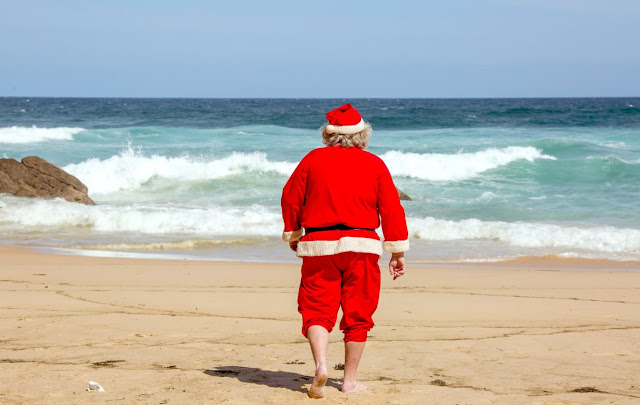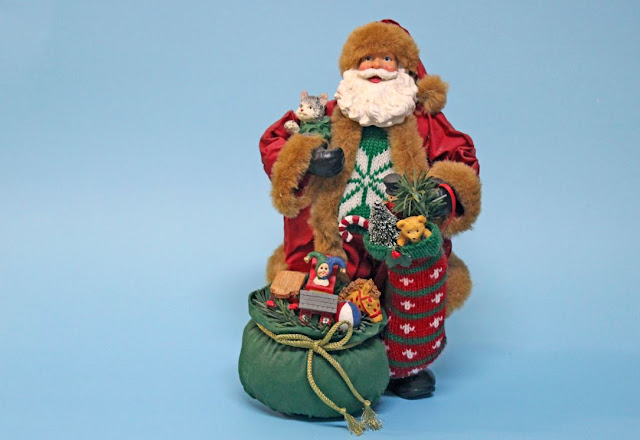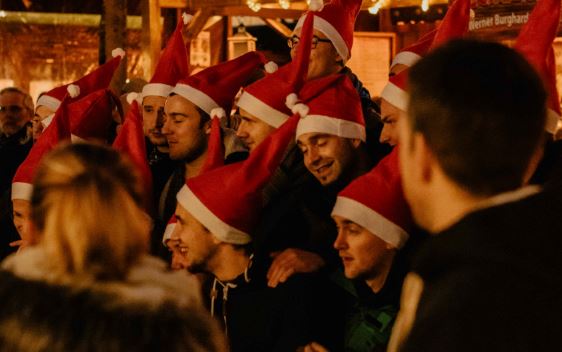Why Christmas Is Celebrated: The History of the Holiday and Its Meaning
Christmas is a time for celebrating with family and friends, gathering around the tree to open presents, and indulging in holiday foods. But what do we really know about the history of this festive holiday? And why is it celebrated?
According to tradition, Christmas began with a Christian observance of the birth of Jesus on December 25th. But how did this come to be? Read on for more information about the history of Christmas and its meaning, as well as some fun facts you might not have known!
Why Christmas Is Celebrated: The History of the Holiday and Its Meaning
 |
| Why Christmas Is Celebrated: The History of the Holiday and Its Meaning |
Who is the real Santa Claus?
 |
| Who is the real Santa Claus? |
Wikimedia Commons/UIG via Getty Images St. Nicholas(Santa Claus) believed to have given his last penny to a woman who was down on her luck.
According to tradition, a legendary figure known as St. Nicholas is known as the real historical person behind the origin of Christmas. This man lived during the fourth century in the town of Myra, a fishing village on the coast of modern-day Turkey. According to the legend, St. Nicholas would visit the sick and needy people at the time and give them gifts.
In the middle ages, this man became a patron saint of children and was said to give his last penny to a poor woman who had no money for food on her plate. These childhood memories are what people still celebrate as St.
When did Christmas become a holiday?
 |
| When did Christmas become a holiday? |
Christmas Day was originally observed in mid-winter as a Christian celebration of the birth of Christ. It was not until the 16th century that the holiday was turned into an occasion to exchange gifts. This came from Europe, where the transition of Christmas from a religious festival to a secular one was being encouraged by influential people in society.
While the first Christmas trees may have come about in Germany, Italy and the Middle East, they were actually rooted in Protestantism, a religion that valued simplicity and humility. The actual day of Christmas came much later than that and was pushed into the calendar when England’s King Henry VIII declared the first Monday after 25th December as Christmas Day in 1549.
What are some of the traditions surrounding the holiday?
 |
| What are some of the traditions surrounding the holiday? |
Christmas trees are a staple of the holiday. They represent the virgin birth of Jesus and are decorated with lights and colourful ornaments.
In the 1600s, it was common practice to give gifts to the children in your family during this time of the year. These gifts were wrapped in bright paper and often had ribbons, bows, and small gifts inside.
There are many different types of Christmas cookies, with over 100 recipes for different cookies. The first recorded cookie recipe dates back to the 1500s when cakes were made with dairy and fruit.
White Christmas-colored eggs are often used for decorating Christmas cookies, but dark chocolate, pink chocolate, and green chocolate eggs are also very popular and often part of the spread on Christmas Day.
Why do we celebrate Christmas?
 |
| Why do people celebrate Christmas? |
Celebrating Christmas during the winter solstice was a way for Christians to recall the hope that comes with the resurrection of Jesus. "The December 25th date is rooted in the Roman pagan celebration of the pagan winter solstice festival of Saturnalia, a celebration honouring the god Saturn," wrote History.com. The solstice was originally known as the "big dig" — hence, the term "Christmas."
However, in other countries, such as Sweden and Germany, it is celebrated on December 24th.
As far as meaning goes, many believe that the holiday symbolizes the start of the Christian Church. In other parts of Europe, it has been referred to as the "birthday of the Virgin Mary," and there are references to the carol "In the Bleak Midwinter.
What are some fun facts about Christmas that you might not have known?
 |
| What are some fun facts about Christmas that you might not have known? |
Christmas is not actually named Christmas. It's a misnomer, as the holiday was not invented by one man. In fact, it was first observed in the 4th century by the Roman Emperor Julian the Apostate, in 363. It wasn't until the 6th century that the church began to celebrate the holiday.
Christmas is celebrated on December 25th because that's the date that the Magi arrived in Bethlehem with their gifts to the infant Jesus. In ancient times, the Christians did not put much emphasis on the birth of Jesus, and they didn't refer to December 25th as Christmas.
Instead, they used a time of feasting and celebrating to remember Christ's birthday, which falls on the Sunday following the first Sunday of Advent, which is at the end of the church year.
Conclusion
Christmas originated in the 1st century AD, during the reign of Roman Emperor Caesar Augustus.
Before we can understand why the holiday became a Christian observance in the first place, we must know the origin of the name Christmas. As this article explains, the name comes from the feast celebrated by the third-century Christian church on December 25th.
The earliest version of the word was "Christ's Mass," and has been translated into many different languages. The holiday, however, has since been transferred to many different festivals with different names, such as Epiphany, Pentecost, Yule, and other celebrations that we know and use today.
------------------------------------
Why Christmas Is Celebrated: The History of the Holiday and Its Meaning
Post a Comment